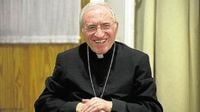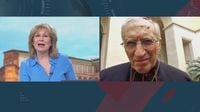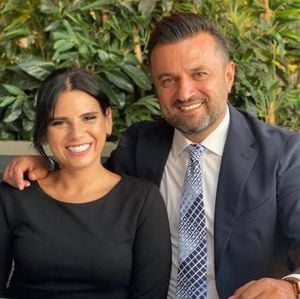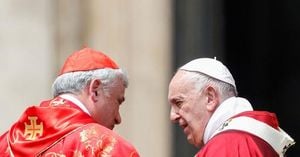In the wake of Pope Francis's passing, Cardinal Antonio María Rouco Varela, the Archbishop Emeritus of Madrid, has expressed his hope that the next Pope will uphold the doctrinal and pastoral continuity established by his predecessors. Speaking in an interview with ABC from the Spanish College of Montserrat in Rome, where he is attending congregations prior to the conclave, Rouco Varela reflected on the late pontiff's legacy and the future direction of the Catholic Church.
Rouco Varela, who was appointed bishop by Pope Paul VI and later elevated to cardinal by Pope John Paul II, emphasized the importance of maintaining the Church's rich tradition. "I ask that the new Pope faithfully continue the great magisterial, disciplined, apostolic, and pastoral tradition of what has been the trajectory of the popes, especially in the 20th and 21st centuries," he stated.
As someone who has participated in two conclaves, Rouco Varela is no stranger to the complexities of electing a new Pope. He humorously recalled his first invitation to Pope Francis to visit Spain shortly after the latter's election. "He acted like a Galician: he never said yes or no," he joked, highlighting the often diplomatic nature of such interactions.
Reflecting on Pope Francis's tenure, Rouco Varela noted that the late Pope sought to continue the governance style of his predecessors. He pointed out a significant connection between Benedict XVI's first encyclical and Francis's last, both of which are centered on the Heart of Christ. "There is a connection between the first encyclical of Benedict and the last of Francis, both focused on the Heart of Christ," he remarked.
Regarding ongoing theological discussions within the Church, such as optional celibacy and the female diaconate, Rouco Varela believes that these matters are largely settled and that Pope Francis did not intend to alter them. "I think they are closed. The Pope did not want to open them in that sense," he asserted, indicating a desire for stability in these areas.
Rouco Varela also outlined his vision for the ideal profile of the next pontiff. He cited the Gospels, emphasizing the need for a Pope who confirms faith, builds upon the rock of Peter, and nurtures the people of God. "If he does that, then he will be a great Pope," he said.
As the conclave approaches, Rouco Varela will have a voice in preparatory meetings but will not be able to vote due to his age. He reflected on the solemnity of the conclave process, stating, "We enter praying in silence. We vote and then return to Santa Marta. It is not a parliament." His experience in previous conclaves has shaped his understanding of the gravity of this moment for the Church.
In light of the upcoming conclave, Rouco Varela addressed concerns about external influences and ideological pressures. He reaffirmed the primary mission of the electors: to choose a good shepherd who can guide the Church and help announce Christ. "Nobody thinks of anything other than choosing a good pastor, a Pope who helps announce Christ and save souls," he emphasized.
As the preparations for the conclave unfold, Rouco Varela's insights provide a glimpse into the hopes and expectations surrounding the upcoming papal election. With the funeral for Pope Francis scheduled for Saturday, April 26, 2025, the Church stands at a pivotal moment, reflecting on its past while looking forward to a future shaped by new leadership.
Rouco Varela's reflections and experiences serve as a reminder of the enduring traditions of the Catholic Church and the importance of continuity in its leadership. As the world watches, the conclave will not only choose a new Pope but will also set the course for the Church's mission in the modern world.





